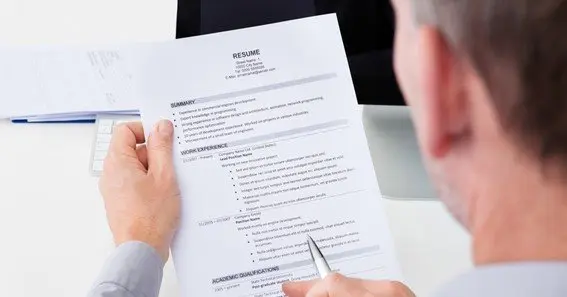Before you perform employment background checks on potential candidates, you must consider several factors. These include EEOC, costs, and legality. We will also look at the possible disqualifications if your candidate is convicted of a crime. Hopefully, these factors will help you make an informed decision.
EEOC
When conducting employment background checks, a few things should be considered. First, you should ensure that the statements are not discriminatory. The EEOC prohibits employers from excluding certain groups. It is also essential that you follow all other state and federal regulations. The EEOC’s guidelines for employment background checks can be a helpful reference. Secondly, background checks should be relevant to the type of job and the position. Third, the information you obtain should not be biased. The EEOC has clarified that using criminal records in hiring is discriminatory. As a result, many states and localities have enacted “Ban the Box” laws prohibiting employers from asking prospective employees about their criminal records too early. The use of criminal records in hiring is heavily regulated, and the EEOC has guided employers to comply with these laws.
Also Read : Urgent Loans: The Complete Guide to Get Emergency Cash within the Same Day
Legality
Also Read : Find an Effective Name for Your Website: 7 Strategies To Try Today
Many employers use employment background checks in the hiring process. These background checks can be used to make decisions about a person’s qualifications for a job, including their education, work history, financial history, and criminal records. However, there is a legal limit to how far these screenings can go. It is also illegal for employers to demand extra background information based on a person’s race or previous discrimination complaints. Also, employers cannot discriminate based on protected activity, including opposing alleged discrimination or participating in proceedings involving federal laws enforced by the Equal Employment Opportunity Commission. On the other hand, employers are permitted to ask for specific medical information on an employee after they have been offered a job. Employment background checks are legal as long as they follow the guidelines established by the Fair Credit Recording Act. Background checks are also prohibited from using personal information or identifying information such as age or race, so employers should be cautious about using them without getting approval from the Federal Trade Commission.
Disqualifications
Disqualifications for a job applicant can vary greatly, depending on the industry, job application, and specific laws. For example, a person with a past conviction for fraud may be disqualified for a banking position, whereas a person with a history of minor financial crimes may not be. In either case, the impact of the crime is more important than the crime itself. Inconsistencies in the application process are another common disqualification for a federal job. Applicants should not change information intentionally, oversell themselves, or omit information that might cause problems in the future. It is also important to note that any attempt to be dishonest can be considered a disqualification in many circumstances.
Click here – Urgent Loans: The Complete Guide to Get Emergency Cash within the Same Day
Costs
A complete background check can help employers mitigate hiring risks and provide a more accurate picture of the applicant’s background. It also protects the organization against litigation, fraud, and violence. Hiring the wrong person can result in tangible losses for the business, including lost productivity and morale. In addition, it can reduce the costs of training and onboarding a new employee. Various services offer these services, and the costs will vary based on the type of service that’s needed. Background checks include criminal records searches, employment verifications, education verifications, and identity checks. These services have varying costs; many are inexpensive, while more in-depth examinations will cost more.
Conducting a background check
If you’re looking to hire someone, conducting employment background checks is an essential part of the hiring process. These checks can reveal various details about an applicant, from their educational background to employment history. They can also disclose criminal convictions, sex offender status, and driving records. It would be best if you always were sure to inform an applicant in writing of your intention to perform these checks.
While a background check can help you to avoid a costly mistake, it doesn’t always uncover the most pertinent information. A thorough investigation will identify whether a person has a criminal record and disclose any previous employment history. It will also reveal any debts the person may have and any late payments. Additionally, it can show fraudulent incidents.
Click here – Find an Effective Name for Your Website: 7 Strategies To Try Today

